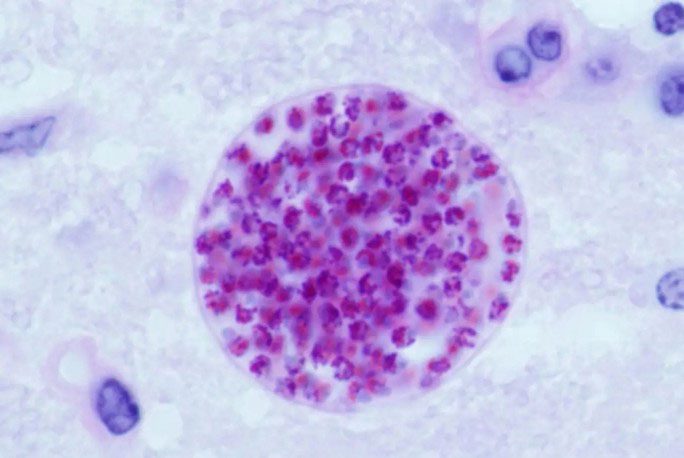Toxoplasma gondii is a type of parasite primarily found in cats. When it infects humans, it surprisingly impacts physical and physiological aspects.
A recent study published in the peer-reviewed journal PeerJ (USA) found that men infected with Toxoplasma gondii (commonly known as T.gondii) tend to have more symmetrical faces compared to others. Meanwhile, T.gondii also causes physical and physiological changes in women, including lower BMI and increased body confidence.

The shape of the T.gondii parasite under a microscope.
This study was conducted by a team of scientists led by postdoctoral researcher Javier Borráz-León from the University of Turku (Finland). Additionally, several universities in Finland, Latvia, Estonia, and Mexico also participated in this experiment simultaneously.
The team surveyed by comparing photographs of 200 individuals with and without T.gondii worldwide. The results indicated that those infected with this parasite appeared healthier and more attractive.
Previous research on T.gondii has shown a connection between mice and elevated testosterone levels in humans. Borráz-León explained that for T.gondii to thrive, it must rely on the mating behavior of cats.
“Therefore, they must find ways to make the host body more appealing in the eyes of their peers. In fact, under the influence of T.gondii, the testosterone levels of male mice increase unexpectedly,” Borráz-León elaborated.
Scientists are conducting further research on the effects of T.gondii on the human body.
Borráz-León confirmed that this research is still in its early stages, with plans for more in-depth studies to uncover the principles affecting hormones and neurotransmitters.
It is estimated that about half of the world’s population is infected with T.gondii, with most of them unaware of the presence of this parasite in their bodies.



















































